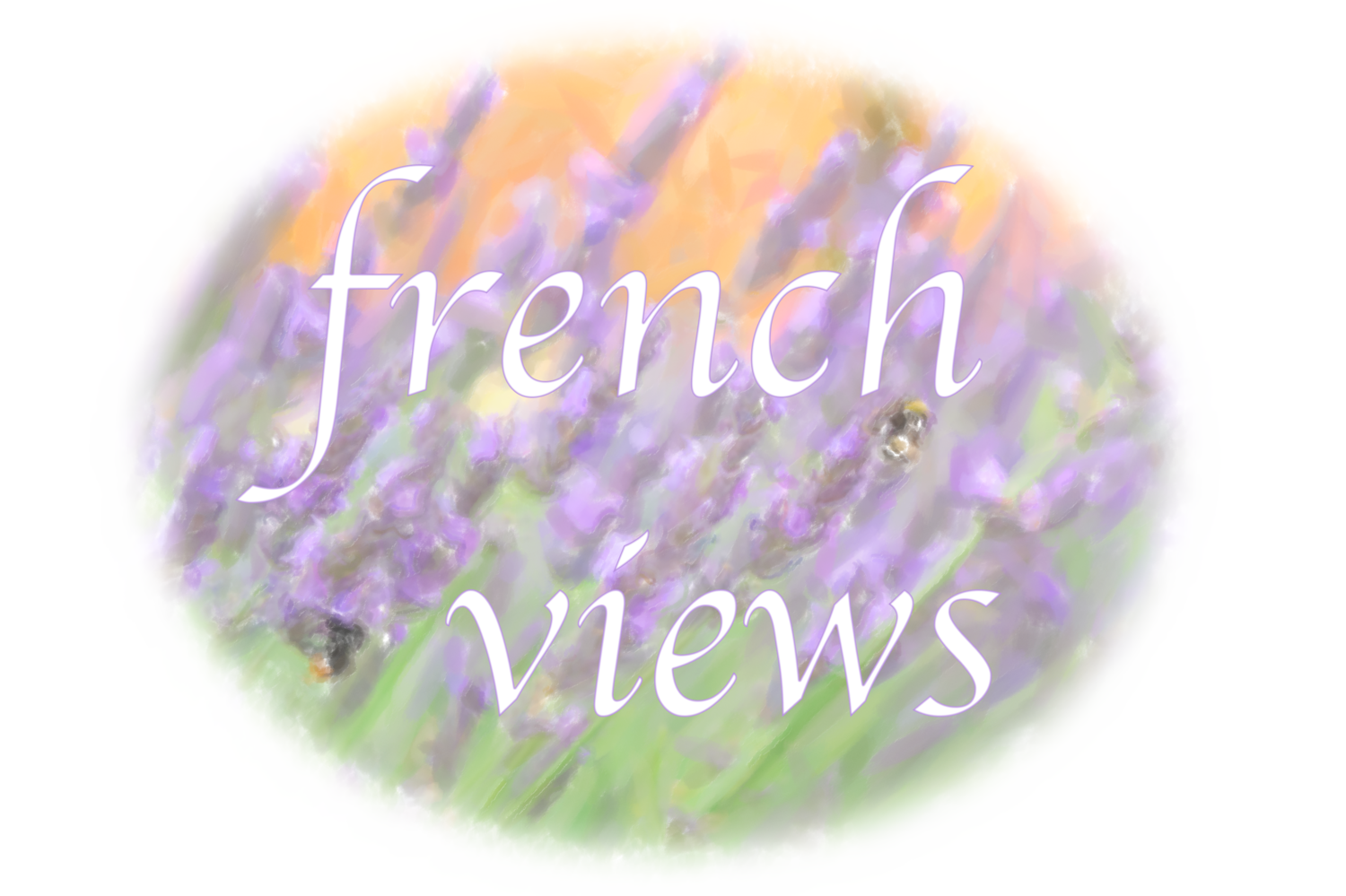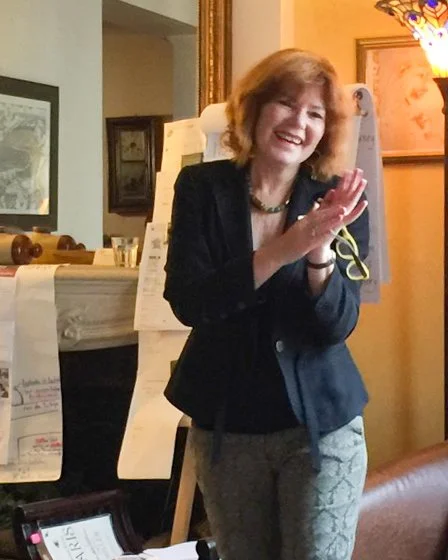Memoir Writing in Paris with Patti Miller
In early 2020, my daughter and I attended the Australian Writers Centre to participate in the course, Creative Writing Stage 1 . Whilst in the centre, I found a bookmark for Patti Miller’s ‘Memoir Writing in Paris’ and as a lover of all things French, I collected this bookmark for future reference. I have continued to nurture my writing journey through AWC with a number of courses.
When I was writing my recent blogpost, ‘7 ways to immerse yourself in France’, I remembered Patti and included her link in that post. She thanked me for the inclusion and this presented a wonderful opportunity to find out more about Patti Miller.
Carole: Hi Patti, thank you for joining the French Views community. Can you please introduce yourself to the readers and tell us about how you came to be a writer.
Patti: Hi Carole, and thank you for the chance to talk about writing with you. I can remember first wanting to be a writer when I was about seven years old, living on a farm on Wiradjuri land in central west New South Wales. I loved the way books brought me into other worlds and decided creating those worlds must be the best job in the world! After school, I enrolled in a creative writing degree at UTS (University of Technology Sydney) in Sydney, which broadened and deepened my experience of literature. I had two sons in my twenties – they kept me busy - but I kept on writing and started having stories and articles published. Then the excitement of having my first book published in my thirties. Later on I lived in Paris for 18 months writing every day, and have continued to write and have books published. I have always been a writer and cannot imagine I will ever stop – writing gives me purpose and joy.
True Friends bookcover
Carole: How many books have you written to date?
Patti: Ten so far: one novel called Child, (Allen and Unwin) six memoir/creative nonfiction books, The Last One Who Remembers, (Allen & Unwin) Whatever The Gods Do, (Vintage, Random House), The Mind of a Thief and Ransacking Paris (both UQP), The Joy of High Places ( NewSouth Press) and just last year, True Friends (UQP) and also three ‘how-to’ writing texts, the latest of which is Writing True Stories from Routledge due out in 2024.
Carole: Could you please tell me about your latest book?
Patti: True Friends was published by UQP last year. It is a narrative nonfiction story recounting the joyful making and then painful ending of a long, close friendship. Friendships are among the most important relationships in our lives, often outlasting love affairs, marriages, even, at times, family connections. Yet ‘friend break-ups’ are little acknowledged in our culture. I wanted to explore the importance and complexity of friendship in women’s lives. Part of this story is set in Paris too.
Patti Miller
Carole: I would like to focus on your Memoir Writing in Paris workshop. Why memoir and can you explain to readers what this entails? Why offer a course in Paris?
Patti: This is an interesting question! I first became involved with memoir when I was teaching creative writing at the University of Western Sydney and noticed that many people wanted to write their own life story. I designed a course for them focussing on how to create a textured sense of life on the page, not just a record or a history, but rich, emotionally engaging sense of what life was really like. The more I taught the course, the more involved I became in memoir and creative nonfiction writing myself. I veered away from fiction into the fascinating world of trying to put down on the page a sense of what it was like for me to be in the world.
Patti teaching her class
Paris workshop venue
After my experience of being a writer in Paris, I thought other people might also enjoy the delight of devoting themselves to writing for a few weeks in a rich literary city. In 2005 the first memoir writing sojourn in Paris was born – and I have been giving the course ever since ( except during the pandemic of course!). Each morning there is a writing class and in the afternoons everyone is free to explore Paris. It gives people the chance to be liberated from their other responsibilities and to concentrate on their writing, at the same time as having the wonders of Paris to enjoy.
Vagenende Brasserie in Paris https://www.vagenende.com/
Carole: Your book, ‘Ransacking Paris’ is about the year you spent in Paris, can you tell us about this time. Why did you go? As an Australian how were you able to spend one year in Paris? Was there one major thing you learned during that year?
Patti: Like many people, I’ve had a long ‘love affair’ with Paris, which I think started when I was a romantic teenager who wanted to be a writer. I was actually a farmer’s daughter hundreds of miles from any city, but my imagination was formed by literature. I wanted to live in Paris in my youth, but I had children and worked as a writer and writing teacher, so was committed to staying in Australia. Then children grew and left home – the younger son had just finished his HSC (Higher School Certificate) when we (my partner and I) slipped away to Paris.
We were able to obtain visas for France because my partner worked from Paris for an Australian university. Living there for 18 months actually changed my connection from an affair with Paris to a long-term relationship! I knew its beauties and riches, but I also came to know its challenges and so my relationship became more familiar and more complex.
In Ransacking Paris I explored the daily wonder of Paris, the places and people, but also the time of transition in my life. In terms of learning something in Paris, it was something difficult to define about the relationship between belonging and being of use to others – perhaps it is easier to quote from Ransacking Paris:
‘Some days it seems that my job is just to wander about helping passers-by find their way. I occasionally know the direction but most often I have to look at my blue map book, Paris Pratique. That particular day, five people asked me which way to go; the Iraqi, an American couple in Chatelet, an elderly French man who must have been from the provinces, a boy on his mobile phone who called out ‘Quel direction est Gare de l’Est?’ as I passed by him in the rue St Martin, and then later in the afternoon in the same street, a young African-French woman with a baby wrapped and tied on her chest wanted to know how to find the Beaubourg, Pompidou Centre.
‘Just along there’ I said in French, ready to hurry past. ‘You’ll be there in a second.’
‘Une seconde?’ she repeated, puzzled. I looked at her unfocussed eyes and suddenly realised that she was blind, and, I somehow hadn’t noticed before, carrying a white cane. She needed me to be more precise.
‘ I could walk with you if you like?’ I said.
‘Thank you,’ she said.
‘Your cannot see at all?’ I asked.
‘I can see colour and general form,’ she said.
‘Your baby can see?’
‘He sees,’ she smiled.
We walked along chatting. When the Beaubourg appeared, I said ‘Voila’ and we parted ways.
I felt absurdly pleased to be of use. It made me feel as if I belonged.
Carole: Can you offer the readers some tips about Paris. Hidden places to visit? Where to stay?
Patti: I like being near the centre of Paris, so I often stay in the 2nd or 4th arrondissement on the Right Bank. I also like staying up around Montmartre in the 18th arrondissement because that is where I lived, so it feels familiar. I suggest staying over the back of Montmartre as it is away from the tourist trail. I always stay in apartments rather than hotels.
I like visiting the ’secret gardens’ in Paris, such as the Jardin des Archives Nationales, or the garden walkway ‘Allée Verte’ from Bastille to the edge of Paris. I also love to grab one of the Paris Vélib’ bikes and ride right up the canal from Bastille to Le Parc de Villette.
Au canal by Paris Vélib’ bike
In Paris always remember to look up …bees. Beehive sculpture at Les Halles.
Carole: If someone was interested in writing a memoir, what advice would you give them?
Patti: Ah, I’ve devoted my life to answering that question! But I would say, start with a memory from childhood without worrying about how to put it all together. Forget about structure for a while, use the ‘patchwork quilt’ method. That is, make lots of smaller pieces of varying shapes and sizes for a while. And use my writing book, Writing True Stories!
One of Patti’s classes enthusiastically embracing French berets
Carole: What other services do you offer for aspiring writers?
Patti: As well as the writing text, I offer live workshops in Sydney, Paris and London – and wherever else I am asked to go. I also offer zoom courses through the Australian Writers Centre, and I offer two online correspondence courses and manuscript development support and mentoring through Life Stories Workshop.
Dream team Paris
Carole: How can readers join you for a writing workshop?
Patti: I offer workshops for a number of different writing organisations so the easiest starting point would be the Life Stories website.
Carole: Here are some links to find out more about writing, tours and keep in contact with Patti.
Merci beaucoup for sharing your story, Patti.
Links:
Website https://lifestories.com.au
Tours https://www.betterreadtours.com















